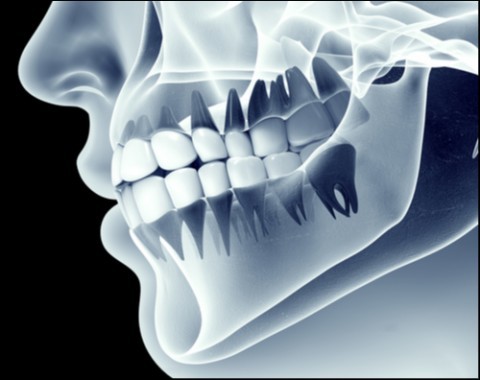How does the Environment Affect your Jaw?
 It’s no secret that pollution and environmental damage can have harmful effects on your health. You’ve probably seen news reports about how poor air quality can contribute to an increase in skin and lung cancers, among other things. But did you know that the environment can also be linked to chronic conditions like Temporomandibular Joint Dysfunction (TMJ) and sleep apnea? Dr. Gary Lederman discusses how something as simple as the air we breathe can have a huge impact on our bodies.
It’s no secret that pollution and environmental damage can have harmful effects on your health. You’ve probably seen news reports about how poor air quality can contribute to an increase in skin and lung cancers, among other things. But did you know that the environment can also be linked to chronic conditions like Temporomandibular Joint Dysfunction (TMJ) and sleep apnea? Dr. Gary Lederman discusses how something as simple as the air we breathe can have a huge impact on our bodies.
One of the first things we think of when we think of ‘environmental changes’ is air pollution. Believe it or not, air pollution can play a big role in TMJ dysfunction. TMJ dysfunction (also known as TMD) is a condition of the temporomandibular joint. The temporomandibular joint is the joint which attaches the lower jaw to the upper jaw, and the rest of the skull. We use the term TMJ dysfunction or TMD to describe pain in the joints of the jaw.
So how does the environment effect your jaw? Well, for example, if you are constantly struggling to breathe through your nose due to congestion from pollutants or simply unable to take in enough air breathing through your nose due to asthma or other breathing difficulties, your body’s natural response is to take air in through the mouth to compensate. However, when most of the breath you draw is through your mouth, your body’s posture changes. Breathing through your mouth causes your head to automatically jut forward, putting pressure on your neck, and ultimately, your jaw. This can be a major irritation to your temporomandibular joint- and a major contributor to TMJ pain, too.
Another surprising cause of TMJ is our constantly evolving diet. Today’s Western diet often causes wear and tear on the teeth. Unfortunately, the look of this wear and tear ages our appearance- and causes many of us to seek cosmetic dental products like veneers to help bring back a more youthful smile. Unfortunately, sometimes cosmetic dental procedures don’t take the full picture into account, and by changing something small in one area of the mouth, they can throw off the alignment of your entire jaw just slightly enough to cause or exacerbate TMJ.
TMJ pain isn’t just a problem in and of itself, either. It can lead to other, more severe problems, like chronic, severe headaches and sleep apnea. Though Sleep apnea can be caused by many things, it is frequently caused by TMJ dysfunction when the lower jaw falls just a little bit too far backward from the upper jaw. This misalignment causes the tongue to retrude, restricting the opening of the airway. This restriction of the airway is one of the most common causes of sleep apnea.
But there is hope! Using the techniques of neuromuscular dentistry, we can often cure TMJ disorder and its symptoms by treating the root cause of the disorder, instead of just treating each individual symptom as a separate entity. The goal of neuromuscular dentistry is actually to put the temporomandibular joint back into optimal alignment, and the jaw into its proper position. By doing this, we can alleviate the pressure on the teeth, muscles and joints, so they all work together harmoniously and without the strain that causes TMJ pain. If you’d like to learn more about how neuromuscular dentistry can help alleviate your TMJ symptoms, give Dr. Lederman’s office a call at 516-882-1764.



